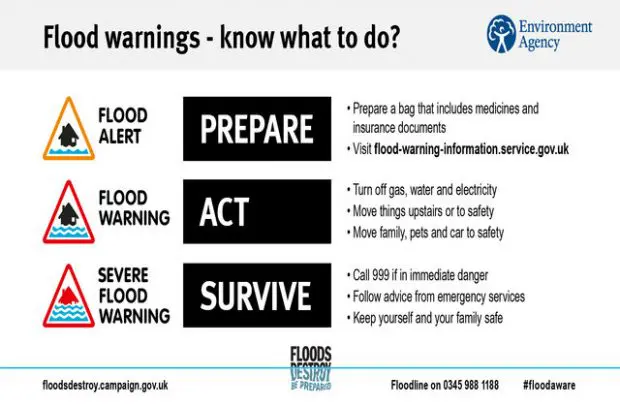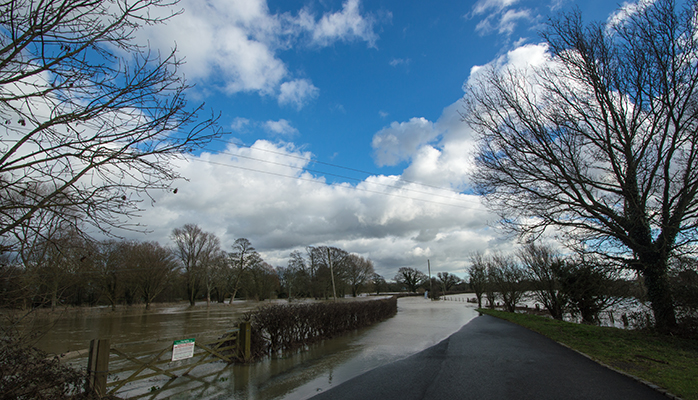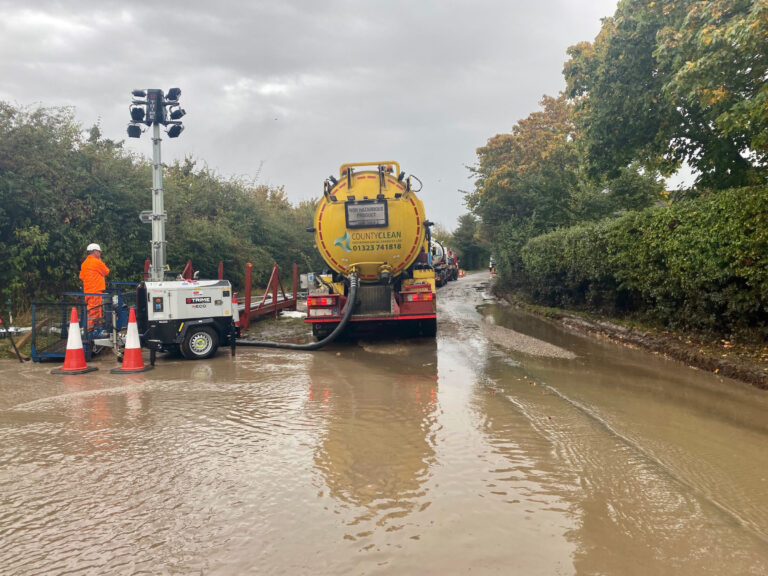Due to recent bad weather and multiple flood alerts throughout the UK we thought we would share some information on how to plan ahead for flooding and what one should do in the event of a flood.
In 2018, the Environment Agency warned that flooding is set to become more frequent. This is following a pattern of severe flooding over the last 10 years which is linked to an increase in extreme weather events with storms becoming more frequent and sea levels rising due to climate change (Environment Agency).
Flooding can occur at any time throughout the year, in more recent years warmer weather has brought the wettest winters on record for 250 years causing rivers and coastal towns and villages to flood.
Dry summers bring sudden and violent downpours which can also cause flash flooding in urbanised areas, this localised flooding is caused by sewer and drainage systems being overwhelmed. Around 5.2 million homes and businesses are at risk of flooding in the UK (Gov.uk, 2018).
Flooding is inevitably going to become more of a problem and at CountyClean Group we can help you prepare for such events in order to prevent flood damage to your property and personal belongings and most importantly to keep yourself and others safe.
A simple way to prepare yourself, your family and your home or business is to check if you are at risk of flooding using a postcode search. You can also sign up for free flood warnings direct to your mobile, home phone or email.
Flood Warnings and What they Mean
There are three different levels of flood warnings, The Environment Agency’s ‘Prepare, Act, Survive’ flood guide (see below) will help you know what to do in case of a flood warning.

How to Prepare Your House or Business Before a Flood
There are some temporary flood solutions to help protect which include; plastic covers to seal airbricks and sandbags which your local council may provide during a flood but they may not be widely available. You could buy your own sand and bags to be prepared or you can fill pillowcases and plastic bags with soil – these will get contaminated with floodwater and will not be reusable.
Some more permanent and costly methods to attempt to keep floodwater out include; fitting non-return valves to drains, buy specially made flood doors, fit water resistant skirting boards, lay tiles and use rugs rather than fitted carpets, using water-resistant materials in the kitchen or bathroom such as stainless steel, plastic or solid wood rather than chipboard and where possible raise fridges and appliances on plinths.
During a Flood
In the event of a flood it is important to focus on the safety of yourself and others around you, always listen to flood alerts and cooperate with the emergency services. Localised flooding is harder to predict than flooding from rivers and the sea, look out for weather forecasts to find out about the possibility of localised flooding from surface water in your area.
Finally, you should move yourself and others upstairs or to higher ground with a means of escape, fill jugs and saucepans with clean water and gather some essential items together. If you are in danger always call 999 or floodline on 0345 988 1188.

After a Flood
Take care when cleaning up or moving around in flood water as there may be hidden dangers such as sharp objects, open manholes and pollution including; sewage, chemicals and animal waste. Wear protective outerwear including gloves, wellington boots and a face mask. In almost all cases, your insurance company will send a loss adjuster to look at your property, if you rent your property, contact your landlord and your contents insurance company as soon as possible. You should always make your own record of flood damage using pictures or videos.
As well as removing greywater (surface water) and blackwater (sewage) from flooded areas and commercial properties, CountyClean Group’s rapid flood response teams are available 24/7 to help prevent infection and contamination from spreading by taking excess water away with powerful vacuum tankers.
Any waste that we remove from site is always transported to a licensed treatment facility where it is processed, made safe and recycled where possible.

We operate as an emergency response team across London and the South, you can count on us any time of day or night. Get in contact with us on 0800 171 2204 or 01323 741818 and our team will be happy to answer any further queries you may have.
